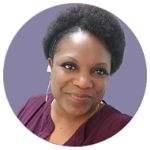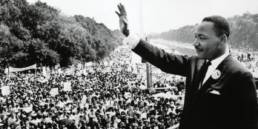
Author: Dorian Dotson
HAWC Volunteer Coordinator
When I was six years old, an ugly act of racism literally, hit me in the face. Walking home from the candy store with my white friend Diana, an older white boy on a bike rode by calling me the N word, “Do you want to buy a watermelon?” His spit then came flying directly my way, landing on my cheek.
I remember crying. I was confused and first wondered, why was this boy being so mean to me? It was a feeling of shame I had not known, until that very moment. The hatred towards me for being black shattered my innocent view of the world.
I grew up on the southside of Indianapolis, Indiana, where Black families like mine inhabited two neighborhood blocks, surrounded by a community of the white working class, many of them hostile towards blacks. Diana, my childhood friend I mentioned, lived among the whites. Her mother welcomed me into their home many days after school to play. But when it came to walking me home to my own house after the traumatic incident, Diana’s father would only walk me to the corner of those two Black occupied streets. He knew his boundaries. At a young age, I too, knew racial divides.
Fast forward to 2022. As an adult Black woman, whose work includes advocating for survivors of domestic and sexual violence, and with a lifetime of confronting race and oppression, I would have a lot to say to my six-year-old self:
You didn’t deserve this.
You had a right to exist in that space.
Your color is not the problem.
As I think about what happened to me when I was six, and as we observe MLK Day on this day, I cannot help but reflect on Dr. Martin Luther King, Jr.’s “I have a dream speech” and that most memorable, oft-quoted line:
“I have a dream that my four little children will one day live in a nation where they will not be judged by the color of their skin but by the content of their character.”
At age six, I was judged for being Black.
Dr. King, who led the nonviolent movement for civil rights, faced enemies throughout his life. From death threats, to fire bombings, to white mob attacks. Yet throughout these terrifying encounters, he held out a higher hope and spoke of the “glorious opportunity to inject a new dimension of love into the veins of our civilization.”
Dr. King’s courage and his lead with love approach, that love is “the only force capable of changing an enemy into a friend,” is for me, nothing short of inspiring. It is, and has been, how I choose to live my life.
Yet, at a time of racial reckoning, in an America that feels recklessly divided, some might doubt Dr. King’s vision.
I do not.
I sometimes wonder what happened to that boy on the bicycle, and what I would say to him if I met him today. I harbor no anger.
Maybe he had a life changing event that shattered his view of life as well. One that freed him of judgement and hate, and allowed for the choosing of love, instead.
Thank you Dr. King for your teachings.
– Dorian

